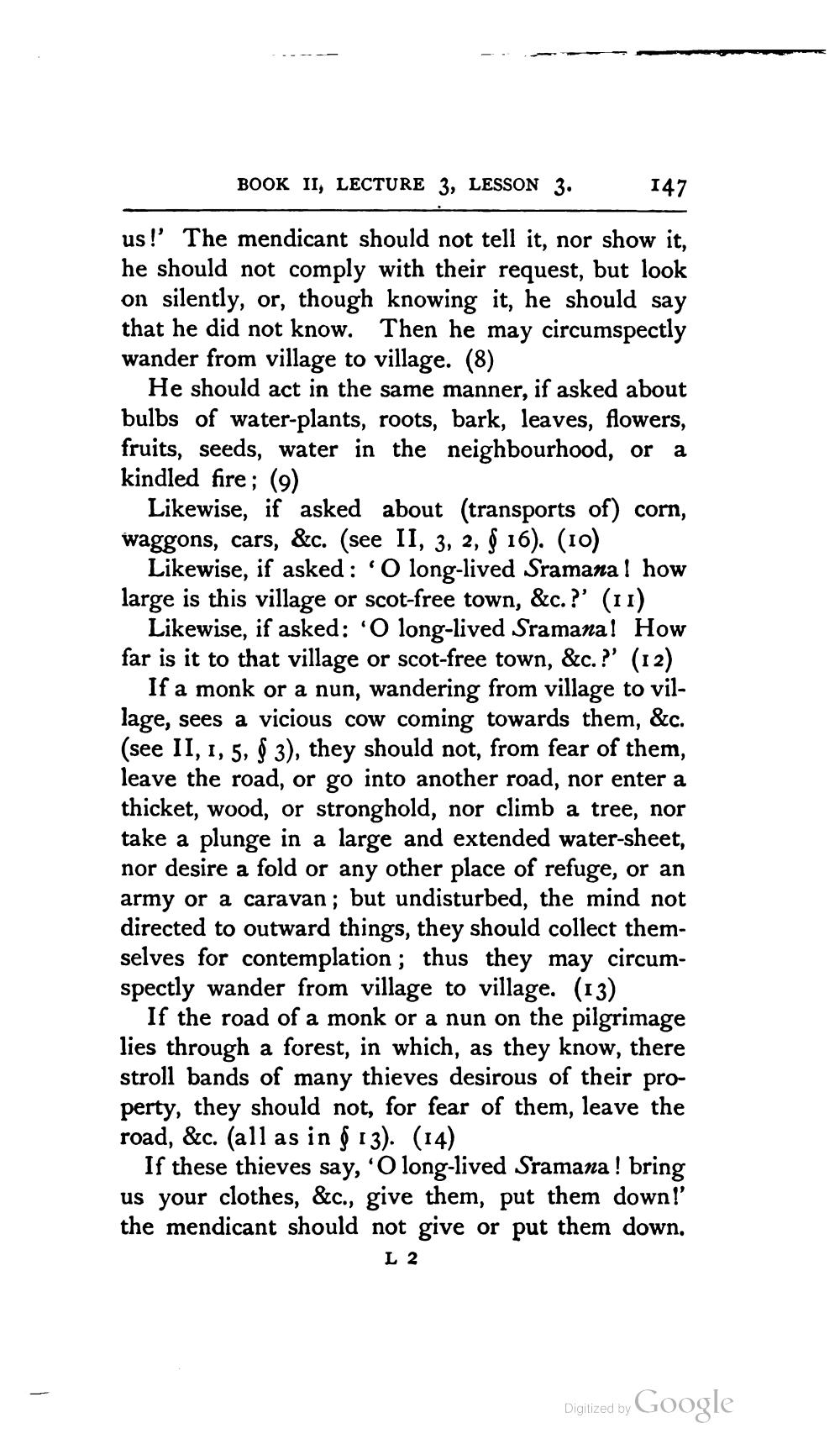________________
BOOK II, LECTURE 3, LESSON 3.
147
ca
us! The mendicant should not tell it, nor show it, he should not comply with their request, but look on silently, or, though knowing it, he should say that he did not know. Then he may circumspectly wander from village to village. (8)
He should act in the same manner, if asked about bulbs of water-plants, roots, bark, leaves, flowers, fruits, seeds, water in the neighbourhood, or a kindled fire; (9)
Likewise, if asked about (transports of) corn, waggons, cars, &c. (see II, 3, 2, § 16). (10)
Likewise, if asked: 'O long-lived Sramana ! how large is this village or scot-free town, &c.?' (11)
Likewise, if asked: 'O long-lived Sramana! How far is it to that village or scot-free town, &c. ?' (12)
If a monk or a nun, wandering from village to village, sees a vicious cow coming towards them, &c. (see II, 1, 5, § 3), they should not, from fear of them, leave the road, or go into another road, nor enter a thicket, wood, or stronghold, nor climb a tree, nor take a plunge in a large and extended water-sheet, nor desire a fold or any other place of refuge, or an army or a caravan; but undisturbed, the mind not directed to outward things, they should collect themselves for contemplation; thus they may circumspectly wander from village to village. (13)
If the road of a monk or a nun on the pilgrimage lies through a forest, in which, as they know, there stroll bands of many thieves desirous of their property, they should not, for fear of them, leave the road, &c. (all as in § 13). (14)
If these thieves say, 'O long-lived Sramana ! bring us your clothes, &c., give them, put them down! the mendicant should not give or put them down.
L2
Digitized by Google




